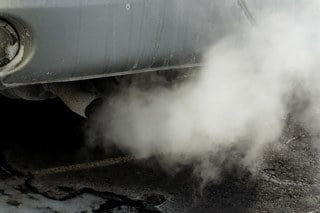Alphabet says that the devil will be in the detail after the Chancellor announced a range of measures to tackle air quality concerns.
“As with any Budget, the devil is in the detail,” said Nick Brownrigg (pictured), CEO at Alphabet. “We’ll only understand the full implications for fleets and company car drivers once we’ve seen and digested the detailed information in the tax documents released by the Chancellor today.
“The announcement of no BIK for electric vehicles (EVs) charged at work is an interesting move which we’re eager to see more detail on, although it’s worth remembering that company-owned vehicles are already exempt from this.”
The £400m investment in EV charging infrastructure and continued support of plug-in grants was welcomed by the leasing company, as was the cancellation of fuel duty rises for petrol and diesel due in April 2018.
However, Brownrigg said: “I think it’s a missed opportunity in a pro-ULEV budget not to bring forward the BIK rates from 2020, as it means a driver taking a zero emission vehicle today will see an increase in BIK up to 16% in 2019, before dropping down to 2% in 2020. Pulling this forward would have been a real incentive for ULEV adoption in UK fleets.”
He added: “It’s disappointing that the diesel supplement on company car tax is increasing by 1% from April and it seems that this will apply to the majority of diesel company cars registered since 1998.
“Large commercial fleets will no doubt breathe a sigh of relief that the measures announced on first year VED will not be applied to LCVs, as the Chancellor pointedly made out with his reference to ‘white van man and woman’.
“The fact that this additional 1% on company car tax and the higher First Year Rate of VED coming in on new cars from April 2018 won’t be applied to all diesel vehicles reflects to some extent that the Chancellor has been listening to the voices of industry who have been warning not to ‘demonise’ all diesels.”
But, Brownrigg says there’s still confusion and significant detail to be clarified in terms of precisely which diesel cars are exempt and which aren’t – and subsequently helping fleet customers and drivers to navigate this change.
“The tax documentation released today states that the VED and company car tax changes relate to all diesel vehicles which fail to meet a standard (Real Driving Emissions - RDE2) which does not come into place until January 2020 and it’s unclear how many vehicles available today actually achieve this standard,” he said.
“Finally, it is reassuring to hear the commitment from the Chancellor that CO2 tax rates will continue to be based on existing NEDC test results until April 2020 and not the new WLTP testing process. Although 2021 would have been a better date to give fleets more time, this is in line with the BIK taxation changes. This removes one of the uncertainties next year for drivers and gives business some time to prepare.”























Login to comment
Comments
No comments have been made yet.